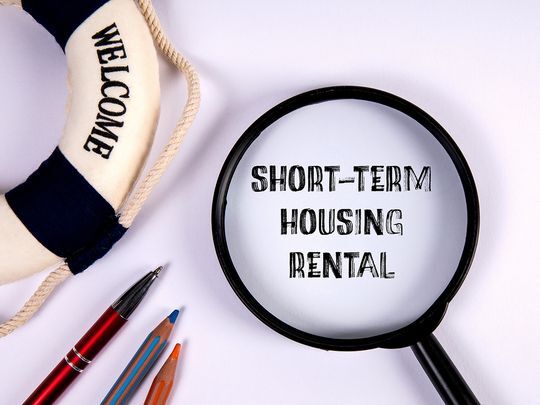Landlords in the UAE who offer short-stay rentals are facing an important decision when it comes to filing their corporate taxes. With the rise of platforms like Airbnb, many property owners have started renting out their properties to tourists and visitors on a short-term basis, leading to potential tax implications that they must now consider. The issue at hand is whether these landlords should register for VAT and pay corporate tax on the income generated from short-stay rentals.
The UAE implemented VAT in 2018, which applies to the supply of goods and services, including rental income. This means that landlords offering short-stay rentals may be required to register for VAT if their annual rental income exceeds the mandatory threshold. Property owners must also decide whether to classify their rental income as a commercial activity, which would subject them to corporate tax. The decision hinges on factors such as the frequency and duration of rentals, amenities and services offered, and whether the property is actively managed or not.
One of the key considerations for landlords is whether to register for VAT. While registering allows them to reclaim VAT paid on expenses related to the rental property, it also means charging VAT on rental income. This could potentially make the property less attractive to renters who are not able to recover VAT. Landlords must weigh the benefits of VAT reclamation against the impact of charging VAT on their rental prices. Additionally, registering for VAT may lead to increased compliance requirements and administrative burden, as landlords would need to file regular VAT returns and maintain detailed records of their transactions.
Another important decision for landlords offering short-stay rentals is whether to classify their rental income as a commercial activity. If deemed commercial, landlords would be subject to corporate tax on their rental income. This could significantly impact their tax liability, as corporate tax rates are higher than personal income tax rates in the UAE. Landlords must carefully evaluate the criteria for determining a commercial activity, such as the intent to make a profit, the nature and scale of operations, and the involvement of employees or agents in managing the property.
In making these tax decisions, landlords should seek advice from tax professionals to ensure compliance with the UAE tax laws and regulations. They must carefully assess the tax implications of their short-stay rental activities and develop a tax strategy that maximizes their tax efficiency while minimizing their tax risks. By proactively addressing their tax obligations, landlords can avoid potential penalties and legal consequences for non-compliance. It is essential for landlords to stay informed about the evolving tax landscape in the UAE and adjust their tax planning strategies accordingly.
The issue of corporate tax on short-stay rentals is a complex and nuanced one, with significant implications for landlords in the UAE. As the popularity of short-term rentals continues to grow, property owners must carefully consider the tax consequences of their rental activities and make informed decisions that align with their financial goals. By understanding the tax implications of VAT registration and corporate tax classification, landlords can effectively manage their tax liabilities and optimize their rental income. In the ever-changing world of taxation, staying informed and seeking professional advice are key to navigating the complexities of the UAE tax system.






